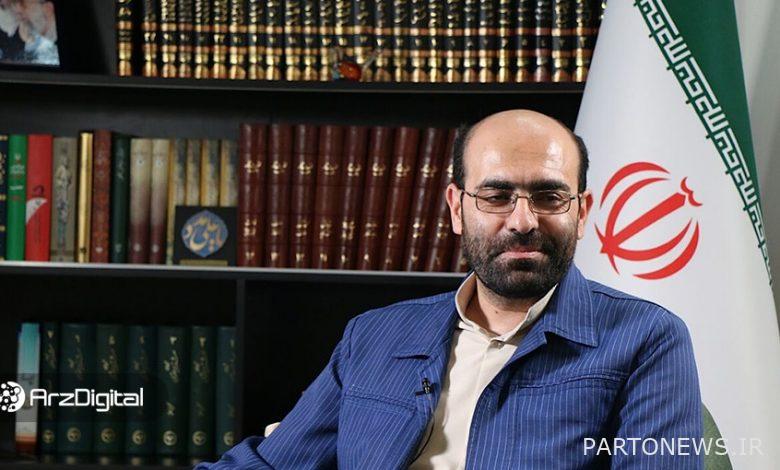MP: The Ministry of Intelligence believed that the goals of the institutions behind digital currencies were not clear

Hadi Beiginejad, a Malayer MP and chairman of the parliament’s energy commission, said government officials, including the Ministry of Intelligence, Economy, Energy and the Central Bank, had previously opposed the legalization of digital currency mining and trading.
According to digital currency and to Quoted From the online economy, the representative of the people of Malayer, referring to the demands of the cryptocurrency market activists regarding the determination of the legal roadmap of this market, said:
The report of the Economic Commission on cryptocurrencies was finally read in the open court of the parliament and a picture of the realities of this market was presented to the representatives, media and economic activists. The report discusses the numbers, figures and statistics that exist on cryptocurrencies, and reviews the approaches that should be taken to create a legal roadmap.
Beiginejad added:
It was mentioned in this report that about 10% of the production and extraction of cryptocurrencies takes place in our country due to the low price of electricity in Iran. In the current situation where the country is facing the problem of electricity shortage, it is announced that at least 4 to 5 megawatts of electricity is being used in the Ramzars mining fields. It is natural that the country is not able to provide this amount of electricity and these needs cannot be met in the short term.
The member of the board of the Energy Commission of the parliament reminded:
Before reading the report on cryptocurrencies during the previous government, the issue of cryptocurrencies was repeatedly examined in the Energy Commission of the parliament with the presence of various experts and activists in this field. Finally, previous government officials, including the Ministries of Information, Economy, Energy, and the Central Bank, opposed the legalization of the production and exchange of cryptocurrencies.
Asked what the roots of the opposition were, Beiginejad said:
On the one hand, the officials of the Ministry of Energy argued that given that the price of electricity in Iran is lower than regional and global rates, it is enough to issue legal licenses to produce and extract cryptocurrencies to spend a large amount of electricity consumed in cryptocurrencies. According to the officials of the Ministry of Energy, between 12 and 15 megawatts of electricity is needed to provide activities related to cryptocurrencies, which is not possible when our country is facing a shortage of electricity.
He continued:
On the other hand, the central bank officials pointed out that due to the high fluctuations in the cryptocurrency rate, from a monetary and financial point of view, suddenly in a short period of time, it may make one spectrum rich and another group black. Therefore, until comprehensive information on the effects of cryptocurrency exchanges in the country’s monetary and financial market is not collected, the production license and cryptocurrency exchanges can not be declared unimpeded. Central bank officials were concerned that the issuance of legal licenses for the exchange of digital currency would lead to a capital market experience and cause much social harm in this regard.
Explaining the reasons for the opposition of the officials of the Ministry of Intelligence to the legalization of digital currencies, Beiginejad said:
Officials in the previous government’s intelligence ministry also said the goals of the organizations and institutions behind the digital currencies were still unclear. In fact, the country’s intelligence structures have pointed out that investing in this field without recognition and legalization may have security and infrastructural consequences for the country.
Noting that the combination of these cases caused the Parliamentary Energy Commission to currently remove projects related to cryptocurrencies from the agenda, the representative said:
Of course, the 13th government’s approach to cryptocurrencies seems to be different from that of the previous government. Traces of these new developments could also be seen in the report of the Economic Commission. After reading the report in the court, a plan is to be prepared in the economic commission entitled to organize the cryptocurrency market and the necessary coordination will be made with the officials of the new government in this regard.
Asked whether ignoring this economic reality would not lead to a large volume of cryptocurrency market-related activities taking place in the informal environment of the economy, Malayer’s representative said:
My personal opinion is that the economic equations of the country should be solved, not the face of the problems. The speed of developments related to cryptocurrencies is so high that any delay in creating a legal roadmap may have irreparable consequences for the country’s economy and public funds.
Beiginejad said in the end:
For example, the capacity of the private sector can be used to provide the electricity needed to generate cryptocurrencies. Many private sector activists have stated that they are ready to invest in the construction of power plants to provide the energy needed to generate cryptocurrencies. The positive feature of this method is that it also increases the country’s electricity capacity to be used during peak consumption. Other information and research programs need to be done quickly so that people are not left alone.

